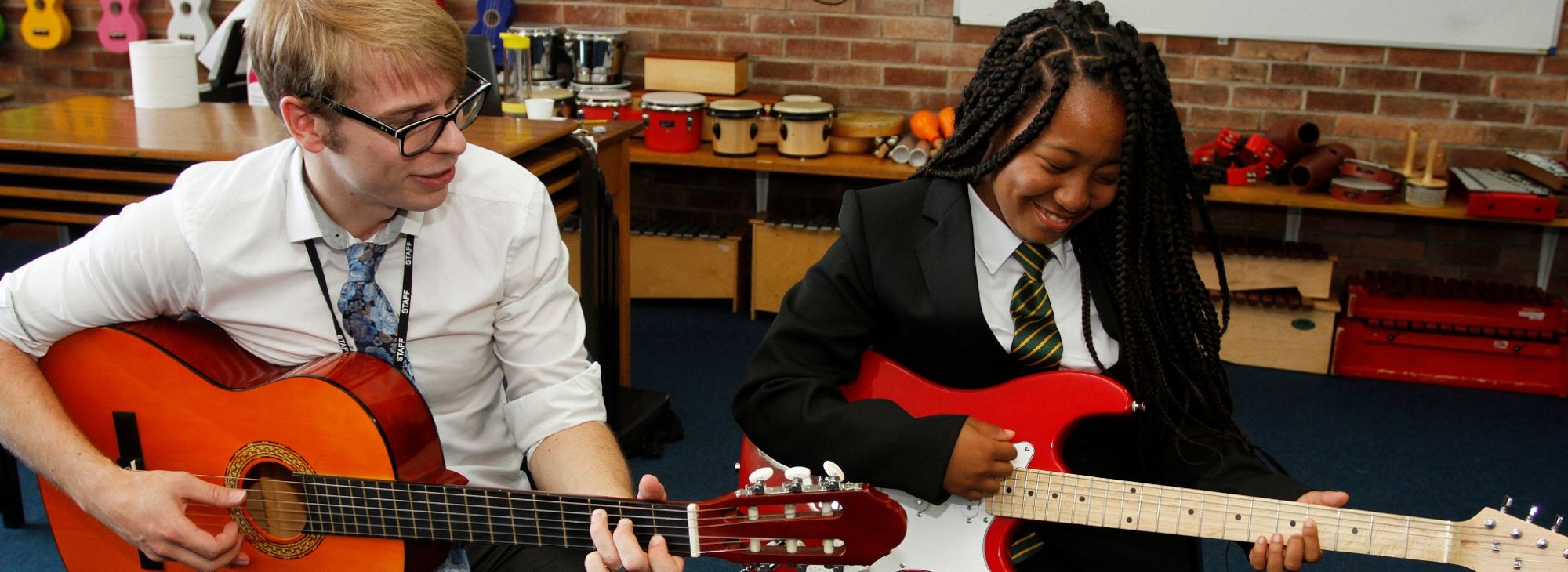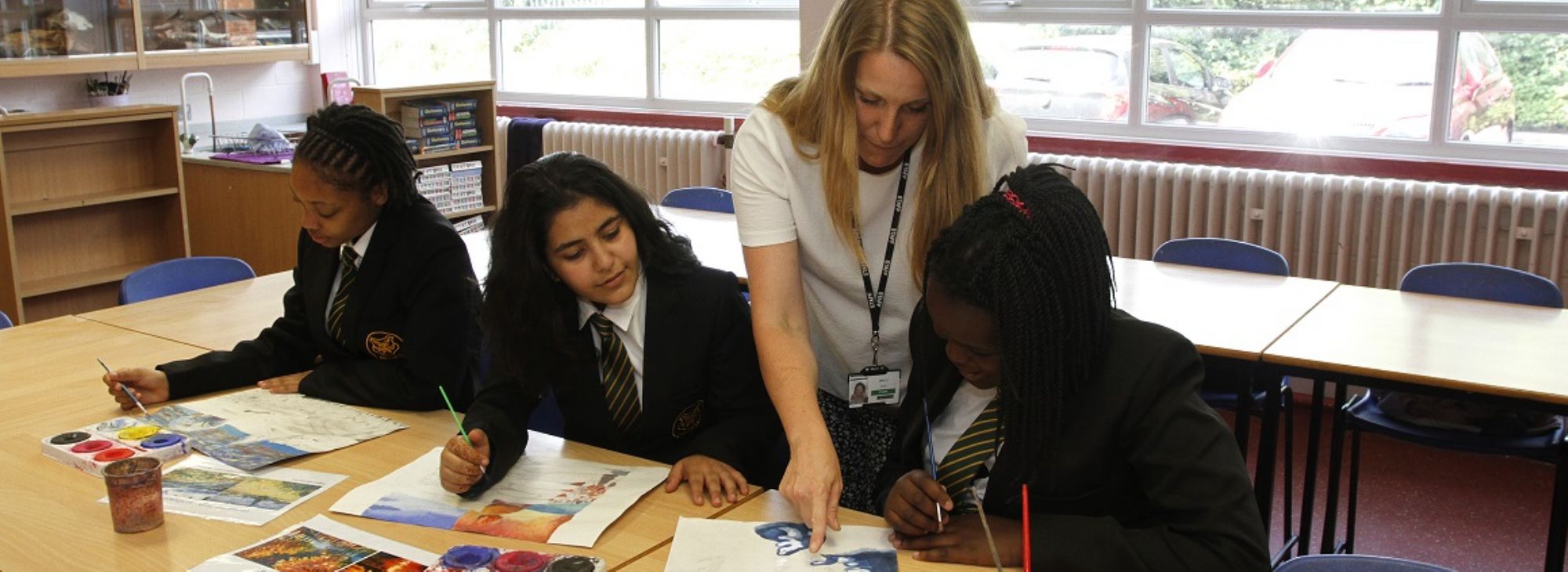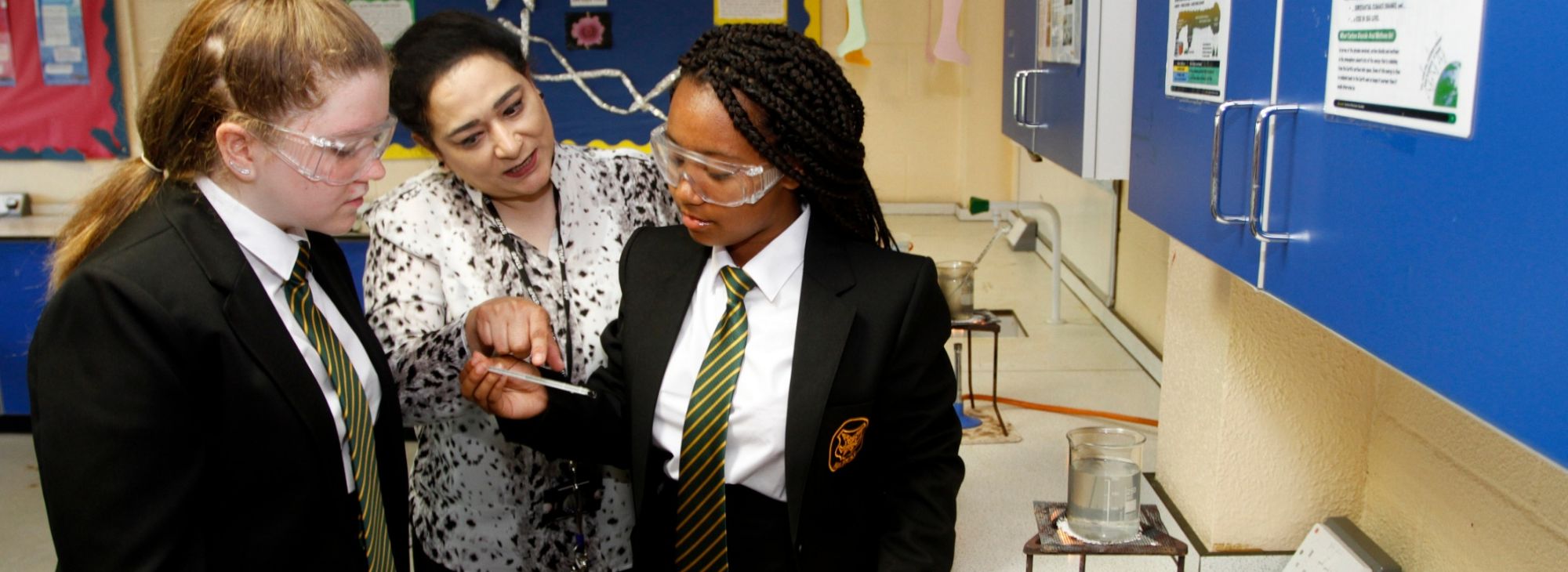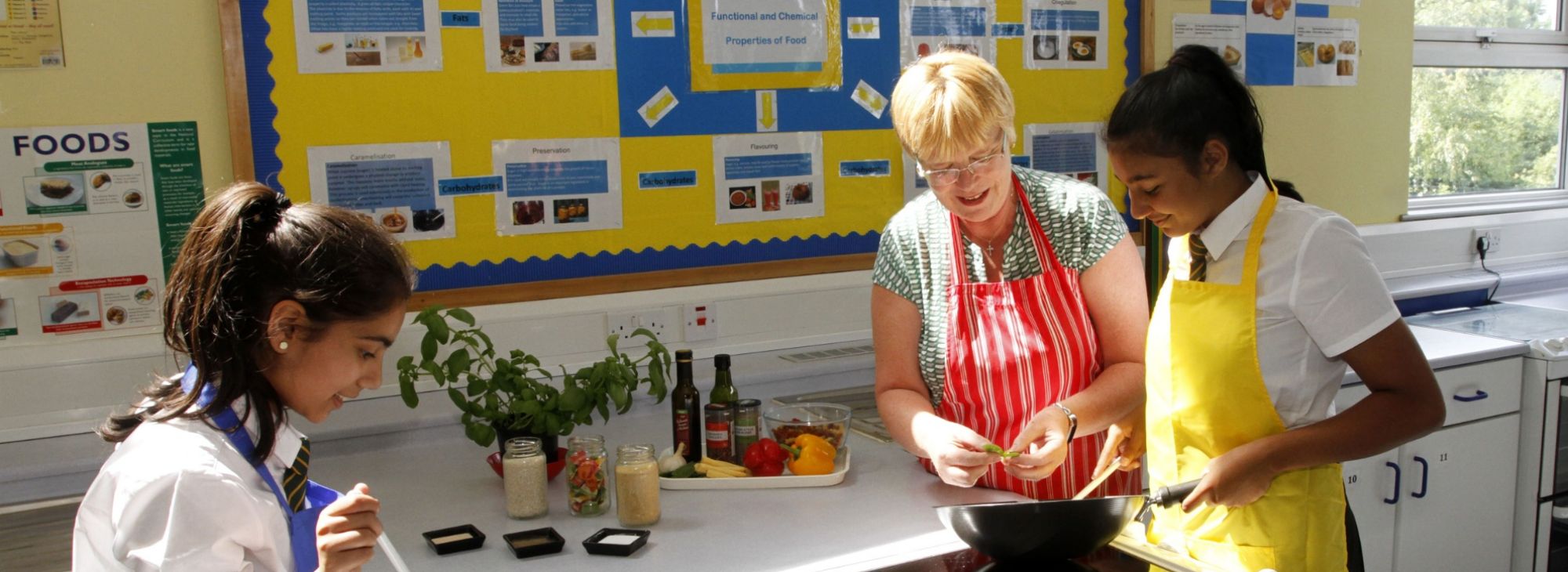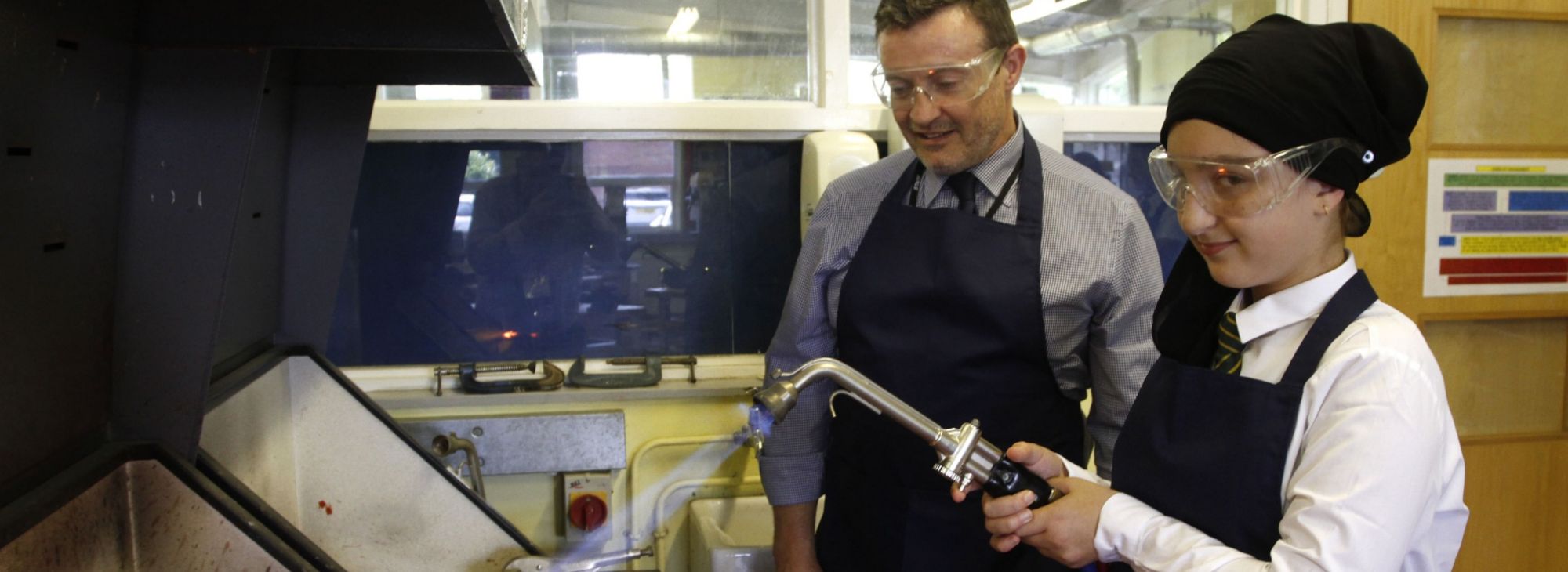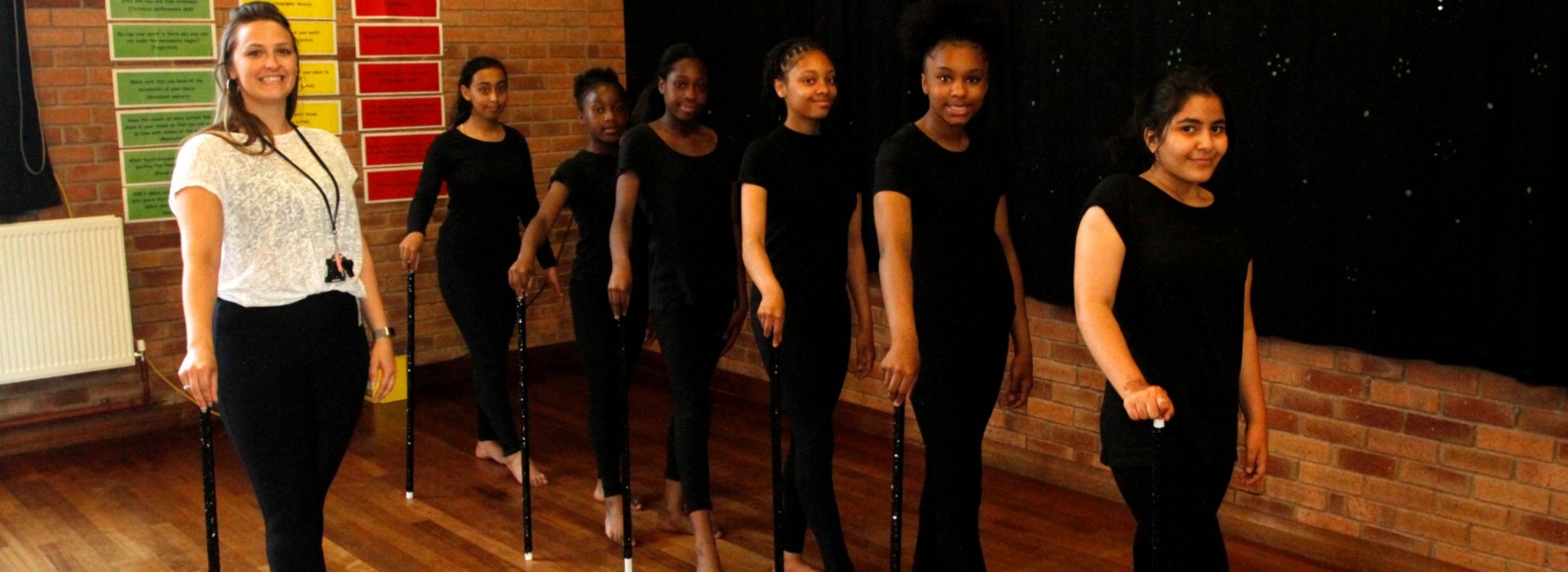French
KEY STAGE 3 CURRICULUM
All students follow a knowledge based curriculum with engaging topics relevant to students’ interests and the world around them. The curriculum is designed to develop the knowledge and skills necessary to become an effective and successful language learner and to support students in developing an understanding of themselves as part of a global society. We aim to develop strong language skills, the ability to work independently and to communicate effectively in a group. We also foster a love of language learning, combined with a positive attitude towards speakers of other languages. Our curriculum supports transition from Key Stage 2. We also encourage and support speakers of other languages to value those skills and where possible to take a GCSEs in their home languages at in Key Stage 4.
We promote high standards by ensuring that students have a strong understanding of grammar and structure which enables them to understand and communicate successfully and independently. There is an emphasis on using the foreign language as a means of communication within the classroom and developing the skills necessary for effective communication. Vocabulary and grammar are regularly revisited in new contexts so that students are able to embed these in their long term memories. We strongly believe that learning a foreign language also supports students’ literacy skills in English, through the development of their understanding of sentence structure, grammar, vocabulary and communication skills and ensures that students are able to transfer these skills to other subjects. In addition, fortnightly lessons in IT rooms using Languagenut and other on-line platforms allows students to develop their vocabulary, listening and reading skills independently, both in school and at home. Students are assessed regularly throughout the year through a mixture of teacher assessments, classroom-based activities and formal assessments in speaking, listening, reading and writing.
Year 7
| Term 1 |
Je me présente – Students develop a good understanding of French phonetics and begin to be able to understand and communicate ideas about themselves and others in the world. They understand the basic building blocks of French grammar in order to begin to express themselves confidently and independently. |
|---|---|
| Term 2 |
Mon collège – Students learn about education, including timetables, subjects, the school day uniform and school rules. They understand more about verb formation and how to express simple opinions and link ideas using conjunctives and adverbs of time. They begin to use resources more independently. |
| Term 3 |
Mes loisirs- Students learn how to discuss free time activities and sports. They become more familiar with present tense verb formation, the use of time phrases and develop their ability to extend sentences and express opinions. |
Year 8
| Term 1 |
Ma ville- Students learn to talk about their local area. They learn how to describe their local area and revisit core grammatical concepts from Year 7 regarding adjectival agreement and possessive adjectives. They develop their ability to decode aural and written texts, before being introduced to the near future in order to describe a future visit to their town at the weekend. |
|---|---|
| Term 2 |
J’adore voyager – students imagine they have been on various visits to Paris as well as other Francophone cities. They learn about the these places and begin to learn how to formulate and use the perfect tense, including irregular verbs, to describe what they have done, their opinions and travel. |
| Term 3 |
Chez moi – In the context of homelife students learn to talk about leisure activities such as TV, the cinema, reading and family relationships, students reinforce their knowledge of all types of present tenses verbs, personal pronouns and express detailed opinion using a wider range of adjectives, qualifiers and opinion openers. They learn to switch between and recognise different tenses. |
Year 9
| Term 1 |
Entre amis- Students learn about how to describe their friends and relationships as well as talking about trips with their friends in the past and future. They extend their ability to develop their answers and to change tenses. |
| Term 2 |
Vivre mieux- This unit considers different aspects of a healthy lifestyle including the role of sport, fitness, healthy eating and routines. Students learn how to use or understand the simple future and begin to understand and/or use some more complex structures such as depuis and the perfect infinitive. |
| Term 3 | De la naissance à la mort- In this unit students consider different aspects of their life from birth to death. These include what they were like when they were little, family relationships, household chores, future plans for work and life and using languages in the future. There is a focus on the future and imperfect tenses, reflexive verbs and negatives. |
Key Stage 4 Curriculum
EDEXCEL GCSE FRENCH
EBACC SUBJECT
COURSE CONTACT: MR B Harrison - Webster Head of MFL
Exam Board Website: https://qualifications.pearson.com/en/qualifications/edexcel-gcses/french-2016.html
Course Content
GCSE French continues to build on what you have learned at KS3. You will continue to develop your listening, reading, speaking, writing and translation skills so that you can communicate more fluently and effectively. You will develop your ability to speak spontaneously, understand authentic texts including literary texts, translated into French and English and apply new language and structures independently.
The following topics are studied:
- Identity and culture.
- The local area, holiday and travel.
- School
- Future aspirations, study, and work.
- International and global issues and events.
Assessment Details
Examinations can be taken at Higher or Foundation level. You must take the same level in all the papers.
There are 4 papers:
- Listening,
- Reading,
- Speaking
- Writing.
Each paper is worth 25% of the total grade.
Why Study This Course?
Developing your communication skills in both French and English, becoming an independent learner and learning about other cultures. Linguists are highly valued in almost every career as every company requires articulate employees with good communication skills. In addition, most companies work with organisations abroad and/or speakers of other languages in this country. Languages are particularly useful in Business, Management, Law, Marketing, Administration, Medical careers, and Journalism. Britain has a national shortage of employees at all levels with language skills.
Please note: Universities are increasingly insisting on a GCSE in a language as an entry requirement. Languages are compulsory in primary schools and, therefore, an essential skill for anyone considering such a career. You must study French at GCSE if you want to study it at ‘A’ Level

